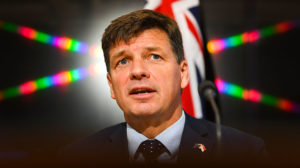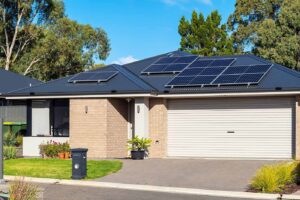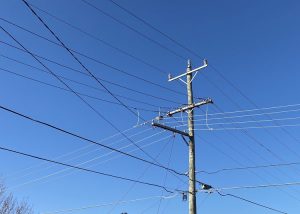Bernie Fraser, the chairman of the Climate Change Authority, has entered the fractious debate around renewable energy in Australia by suggesting that the renewable energy target be maintained at its current level of 41,000GWh, but be given more time to be met.
 The former head of the Reserve Bank of Australia also suggests that the Abbott government use funds from its Direct Action policy to help owners close old and inefficient coal fired generators – so addressing the problem of excess capacity caused by coal generators working beyond their “useful” life.
The former head of the Reserve Bank of Australia also suggests that the Abbott government use funds from its Direct Action policy to help owners close old and inefficient coal fired generators – so addressing the problem of excess capacity caused by coal generators working beyond their “useful” life.
The CCA has been sidelined from the debate around the renewable energy target, because the Abbott government has tried to abolish it, and rather than allow the CCA to fulfill its statutory duty to conduct this year’s RET review, chose instead to create a panel led by climate change denier Dick Warburton.
Fraser, speaking on ABC Radio National’s Breakfast program, said it was clear that the Warburton review had not taken the long-term implications of climate change into account in its conclusions.
Instead, Fraser said, the Warburton Review had focused only on “short term” issues about over-capacity and its adverse impact on coal fired generators – despite recognisng that the RET was functioning as designed. (See our story: Why were RET modellers instructed to ignore commercial reality”.
Fraser said one solution could be to retain the 41,000GWh target – but could allow more time to meet it rather than the current deadline of 2020. This, he said, would provide confidence to developers and to financiers.
Interestingly, this is the same compromise deal that leading players in the renewable energy industry tried to take to leading utilities last year. However, that offer was knocked back when the utilities sensed that the Abbott government could be persuaded to either close the target to new entrants, or to scale it back significantly – which are the two key recommendations of the Warburton Review.
It is also the preferred position of the NSW Coalition government, which has argued that the 41,000GWh target be kept, but the timing adjusted to cater for surplus market capacity issues.
“Renewables will become much more prominent in the mix of sources of generation,” Fraser said in the ABC interview. “That is pretty clear to everybody.”
Delivering a few extra years to meet the target (he did not suggest a new timeframe) would give fossil fuel generators adapt to those trends.
In the meantime, funds from Direct Action could be deployed to help the oldest, dirtiest and least efficient coal fired generators to exit the market permanently. Some 3,000MW of fossil fuel capacity has been mothballed, but little closed completely because of the high remediation costs.
As we reported on Tuesday, this can cost between $100 million and $300 million per plant. Coal generators owners find it cheaper to keep the plant in mothballs.
AGL Energy said this was one major reason why three quarters of Australia’s capacity had gone beyond their “useful” life, and why there was around 9,000MW of surplus baseload capacity in the market. (See our story: Australia’s real energy problem: Too many useless coal generators
Fraser said if part of the funding of Direct Acton were to be made available to facilitate such exits “ that would be a meaningful use of direct action.”
Such a move would still be controversial, given that in the world’s biggest energy markets, China and US, old coal generators are being forced out of the market by regulation and tight emission standards, rather than government handouts.
Fraser said the threat of repeal had been “devastating” to the CCA staff, but it retained a “core” competence that could provide a useful role in solving the political impasse over renewables.
The Abbott government has signaled that it was looking for “bipartisan” support from Labor – given that any plans to change the RET would be blocked in the Senate by the minor parties.
Perhaps Labor could take up Fraser’s suggestion and bring him to the table in any talks with the government.
The Climate Institute seized upon Fraser’s remarks, saying that a bipartisan approach to decarbonising Australia’s electricity sector with a goal of at least a 50 per cent cleaner power supply by 2030 needs to be central to discussions around the Renewable Energy Target.
“Both major parties accept the international goal of working to avoid 2°C warming but neither has yet accepted that this requires a longer term decarbonisaton goal,” said Erwin Jackson, Deputy CEO of The Climate Institute.
“Australia’s energy policy debate has been in a stalemate with a short-term fixation to 2020, when all parties should look much further ahead.”







